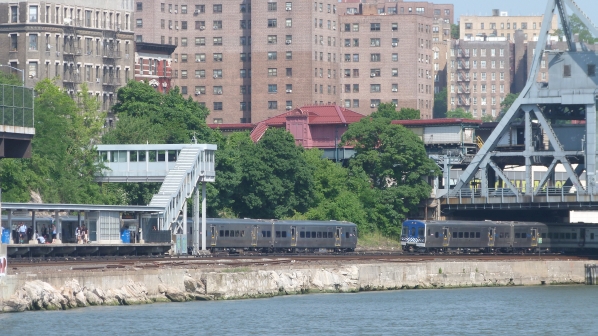The plan projects surpluses of $US 143m in 2019, $US 11m in 2020 and $US 33m in 2021, with projected deficits of $US 212m in 2022 and $US 426m in 2023. MTA says the transformation plan, which will change the way the authority operates by focusing on core service delivery, is projected to deliver $US 1.6bn in savings over the course of the financial plan.
The proposed budget includes “no budget-driven service cuts,” and 4% biennial toll increases in 2021 and 2023 which will yield a projected $US 326m and $US 341m respectively.
MTA also plans to introduce measures to reduce fare evasion, which a recently updated survey estimated results in $US 300m in lost revenue annually. These include the deployment of 500 officers to support these efforts, monitors showing customer images as a deterrent and redesigned subway station exit gates.
The plan also assumes successful renegotiation with the City of New York for a more equitable sharing of the deficit created by the operation of “Paratransit” on-demand transport services. The contract was first negotiated in 1993, but the operating deficit has since grown from $US 11m in 1994 to $US 549m in 2019.
Other measures include:
- cost avoidance through fiscal constraints placed on “controllable” overtime
- addressing new maintenance requirements
- hiring an additional 500 MTA police officers
- eliminating currently vacant administrative positions
- fortifying technology networks, and
- achieving annually recurring savings targets.
“Budgets are not just about the fiscal realities we face, but are also a statement of priorities for the coming year,” said MTA chairman and CEO, Mr Patrick J Foye. “The budget builds on the progress we have made in the past year with significant gains in on-time performance, increases in ridership and reductions in major delays across subways, Metro-North and Long Island Rail Road and demonstrates we are headed in the right direction. We have advanced a bold, transformative $US 54.8bn Capital Plan, which will further improve service for our eight million daily customers, modernise our system and finally deliver a 21st century transportation system worthy of New York.”
“This budget responds to the fiscal challenges we face while avoiding budget-driven service cuts or fare hikes not already scheduled,” said Mr Bob Foran, MTA chief financial officer. “At the same time, we recognise significant challenges remain and the MTA will continue to find more efficiencies and aggressively cut costs. We are in the midst of an historic transformation that will change the way we do business and yield significant reforms for taxpayers and customers.”

